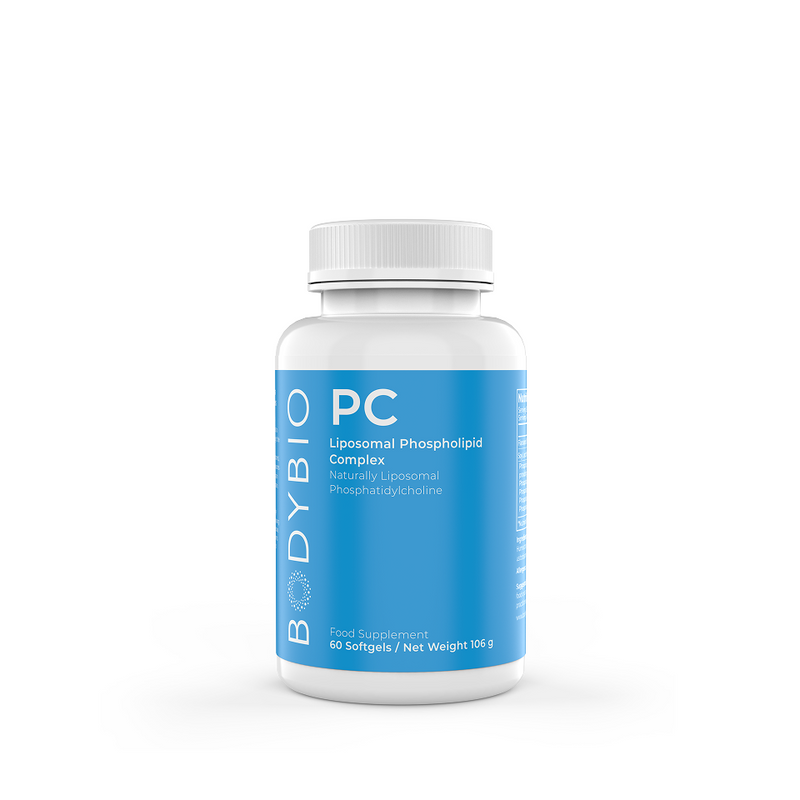The Productivity-Health Connection: How a Healthy Body Fuels a Focused Mind
Key Takeaways:
- The secret to getting more done isn’t just about time management — it starts with how you take care of your brain and body.
- A few simple shifts in your daily routine can help you stay focused, energized, and productive without feeling drained.
- If you’re constantly battling brain fog or low energy, there may be an unexpected reason behind it — and an easy fix.
Most people think productivity is all about managing time better or being more disciplined, but the real key to getting more done lies in your overall health. For the ultimate levels of productivity and performance, your brain and body need the right support. Proper nutrition, restful sleep, and an active lifestyle create the foundation you need to be at your most productive.
Taking care of your health makes staying productive much easier. How you fuel your body and support your brain affects your focus and energy levels. Simple adjustments to your diet, physical activity, and daily habits can help you stay sharp, maintain steady energy, and avoid burnout.
Table of Contents:
The Link Between Health and Productivity
We've all had days when our energy levels are low, our brain feels foggy, and even simple tasks feel overwhelming. This isn't just a motivation problem — it's often a physical or mental issue. Your productivity is directly influenced by factors like sleep, nutrition, exercise, and stress management. When these areas suffer, your brain struggles to perform at its best.
Imagine your brain as a high-performance engine. If you don't fuel your brain properly, neglect maintenance, or push yourself too hard without rest, that engine will eventually break down. The good news? Small, intentional lifestyle changes can drastically improve your focus, efficiency, and energy levels — making it easier to get things done without feeling exhausted.
How to Boost Productivity
Boosting productivity isn't just about working harder — it's about making small, sustainable changes that help your mind and body function better. When you prioritize your health, you'll find it easier to stay focused, manage your energy, and get through your to-do list without feeling drained.
Here's how to be more productive in life:
Prioritize Sleep for Mental Clarity
Sleep is one of the most underrated productivity boosters. Lack of sleep impairs cognitive function, slows reaction time, and reduces your ability to make decisions. If you're struggling with focus and energy, your sleep could be the culprit. Poor sleep leads to brain fog, slower thinking, and trouble staying on task. A good night's rest isn't just about the number of hours — it's about the quality of sleep you're getting.
Here are some simple ways to improve sleep quality:
- Stick to a consistent sleep schedule, even on weekends.
- Reduce screen time before bed to minimize blue light exposure.
- Incorporate magnesium or essential fatty acids to support deeper, more restorative sleep.
Move More, Think Better
Physical activity increases oxygen flow to the brain, which improves focus, memory, and mental stamina. Sitting for long periods slows circulation and leads to fatigue, making it harder to stay engaged with your work.
Here are some simple ways to incorporate more movement throughout the day:
- Take short walking breaks every 30–60 minutes.
- Use a standing desk or swap your chair for an exercise ball.
- Try stretching or light exercises during your breaks to boost circulation.
Balance Your Nervous System
Feeling constantly anxious, mentally drained, or on edge? Persistent anxiety, overwhelm, or mental exhaustion may be signs of an overactive nervous system. Chronic stress causes your nervous system to get stuck in overdrive — causing your body to release excess cortisol — which can impair focus and lead to burnout. Elevated levels of cortisol make it harder to focus, stay motivated, and even get through simple tasks without feeling exhausted.
Simple ways you can reset your nervous system:
- Practice deep breathing exercises, such as box breathing or the 4-7-8 breathing technique — inhale for four seconds, hold your breath for seven seconds, and exhale for eight seconds to promote relaxation and focus.
- Try EFT tapping, a technique combining gentle tapping on pressure points with mindful affirmations to ease stress and improve focus.
- Incorporate yoga or meditation into your routine to help regulate the nervous system and boost mental clarity.
- Use cold exposure techniques like cold showers or a cold plunge to stimulate recovery.
- Incorporate Omega-3s and other essential fatty acids to support brain function and a healthy stress response.
How to Be More Productive at Work
Being productive at work isn't just about working longer hours — it's about working smarter. A well-organized workspace, an intentional schedule, and the right fuel for your brain can make all the difference in how you tackle tasks. Whether you're in an office or working remotely, creating an environment that supports focus and mental clarity will help you get more done with less stress.
Here are some productivity tips to help you structure your workday:
Optimize Your Workspace
A cluttered, distracting environment makes it difficult to stay focused. Your workspace should promote concentration, not stress.
- Keep your desk organized to reduce visual distractions.
- Adjust lighting to keep your workspace bright and energizing.
- Use noise-canceling headphones or ambient background music to block out distractions.
Work Smarter, Not Harder
Rather than pushing through long hours, structuring your workday efficiently can help you achieve more in less time.
- Use the Pomodoro Technique — work in focused 25-minute sprints, followed by short breaks.
- Tackle deep-focus tasks in the morning when cognitive function is at its peak.
- Schedule brain breaks to prevent mental fatigue and maintain productivity throughout the day.
Maintain Energy Levels with Proper Nutrition
What you eat directly impacts how well your brain functions. Avoid sugar crashes by fueling your body with steady, long-lasting energy sources.
- Eat balanced meals rich in protein, healthy fats, and fiber.
- Stay hydrated — dehydration can lead to sluggishness and lack of focus.
- Incorporate brain-boosting supplements (more on that below).
How to Stay Productive While Working from Home
Working from home sounds great in theory — no commute, more flexibility — but it also comes with obstacles. Without the natural structure of an office, it's easy to get distracted, lose focus, or feel isolated. The lack of clear boundaries between work and personal life can make it even harder to stay productive. Fortunately, with the right productivity tips, you can create a work-from-home routine that keeps you focused and efficient.
Here's how to be productive at home:
Set Clear Boundaries
One of the biggest struggles for remote workers is keeping work and personal life separate. Without a clear boundary, it's easy for work to spill into personal time — making it feel like you're always on the clock. Setting firm boundaries is essential to maintaining a healthy balance and staying productive.
- Designate a specific workspace to separate work from relaxation areas.
- Set clear work hours and stick to them to avoid work-life imbalance.
- Develop a morning ritual that signals the start of your workday, like taking a walk, writing your to-do list, or tidying up your desk.
Incorporate Movement
When working from home, you don't have those built-in moments of movement from commuting or walking to meetings, and that lack of activity can lead to sluggishness. Without small movement breaks, your body stiffens up — which can make your brain feel foggy. Add movement to your day to keep your mind and body engaged.
- Start your morning with a short walk to wake up your brain.
- Use a standing desk or switch between sitting and standing throughout the day.
- Step outside for fresh air and sunlight to regulate your circadian rhythm.
How to Stay Productive with ADHD
For those with ADHD, traditional productivity strategies don't always work the same way. The brain craves stimulation, making it difficult to focus on less exciting tasks. Luckily, there are ways you can harness your strengths and create an environment that supports sustained attention and efficiency.
Use High-Stimulation Productivity Methods
- Work in an environment with light background noise, such as a café or a co-working space.
- Use fidget tools, movement breaks, or standing desks to prevent restlessness and improve focus.
- Break tasks into smaller, bite-sized steps and set quick deadlines to maintain momentum.
Leverage External Accountability
- Try "body doubling," where you work alongside someone else to stay on track.
- Use visual reminders like sticky notes, alarms, or habit-tracking apps to keep tasks top of mind.
- Set up an accountability system, such as checking in with a friend, coach, or coworker on your progress.
Nutrition & Supplements for ADHD
Managing ADHD often requires more than just structure and time management — what you eat plays a big role in how well your brain functions. Certain foods and nutrients help stabilize energy, enhance focus, and support neurotransmitter production. By making intentional dietary choices, you can create a more consistent mental state, improving both productivity and overall well-being.
- Prioritize protein-rich breakfasts to stabilize energy levels and improve focus.
- Reduce sugar intake to avoid energy crashes that can worsen attention difficulties.
- Consider ADHD supplements like Omega-3s, magnesium, and phosphatidylcholine to support brain health and cognitive function.
The Best Vitamins & Supplements for Productivity
Even with the best habits in place, staying focused and energized isn't always easy. Stress, poor sleep, and everyday demands can take a toll on cognitive function. This is where brain-enhancing vitamins and supplements can make a difference. The right nutrients help sharpen focus, improve memory, and sustain energy levels throughout the day.
Vitamin B12 – The Energy Booster
- Why? Supports nerve function and prevents brain fog.
- When? Take in the morning for sustained energy throughout the day.
- Sources: Grass-fed meats, eggs, fortified cereals, or supplements.
Vitamin B6 – Cognitive Function Support
- Why? Helps produce neurotransmitters like dopamine and serotonin.
- When? Best taken with meals.
- Sources: Bananas, poultry, fish, potatoes, or supplements.
Omega-3 Fatty Acids – Brain & Nervous System Support*
- Why? Reduces inflammation, improves memory, and enhances mental clarity.*
- When? Take daily with food.
- Sources: Fatty fish (salmon, mackerel), flaxseeds, walnuts, or fish oil supplements.
BodyBio PC – The Ultimate Productivity Supplement*
- Why? Supports cell membrane health, cognitive function, and mental energy.*
- When? Take in the morning for optimal brain function.
- Pair With: Omega-3s for maximum benefit.
Work Smarter by Prioritizing Your Health
Boosting productivity isn't about endlessly grinding or hustling and checking tasks off your to-do list — it's about giving your brain and body what they need to perform at their best. From improving sleep to balancing your nervous system, small changes in daily habits can make a big impact on your energy and focus. Whether you're fine-tuning your work routine, adjusting your diet, or incorporating the right supplements, prioritizing your health will help you stay sharp, work efficiently, and avoid burnout in the long run.
Adaramola S. S. (2012). Job stress and productivity increase. Work (Reading, Mass.), 41 Suppl 1, 2955–2958. https://doi.org/10.3233/WOR-2012-0547-2955
Baumeister J, Barthel T, Geiss KR, Weiss M. (2008). Influence of phosphatidylserine on cognitive performance and cortical activity after induced stress. Nutritional Neuroscience, 11(3):103-110. https://doi.org/10.1179/147683008X301478
Boyle, N. B., Lawton, C., & Dye, L. (2017). The Effects of Magnesium Supplementation on Subjective Anxiety and Stress-A Systematic Review. Nutrients, 9(5), 429. https://doi.org/10.3390/nu9050429
Chung, S. Y., Moriyama, T., Uezu, E., Uezu, K., Hirata, R., Yohena, N., Masuda, Y., Kokubu, T., & Yamamoto, S. (1995). Administration of phosphatidylcholine increases brain acetylcholine concentration and improves memory in mice with dementia. The Journal of nutrition, 125(6), 1484–1489. https://pubmed.ncbi.nlm.nih.gov/7782901/
Cuciureanu MD, Vink R. Magnesium and stress. In: Vink R, Nechifor M, editors. Magnesium in the Central Nervous System [Internet]. Adelaide (AU): University of Adelaide Press; 2011. Available from: https://www.ncbi.nlm.nih.gov/books/NBK507250/
Frank, M. G., & Heller, H. C. (2019). The Function(s) of Sleep. Handbook of experimental pharmacology, 253, 3–34. https://doi.org/10.1007/164_2018_140
Hackney, A., Yung, M., Somasundram, K. G., Nowrouzi-Kia, B., Oakman, J., & Yazdani, A. (2022). Working in the digital economy: A systematic review of the impact of work from home arrangements on personal and organizational performance and productivity. PloS one, 17(10), e0274728. https://doi.org/10.1371/journal.pone.0274728
Healy-Stoffel, M., & Levant, B. (2018). N-3 (Omega-3) Fatty Acids: Effects on Brain Dopamine Systems and Potential Role in the Etiology and Treatment of Neuropsychiatric Disorders. CNS & neurological disorders drug targets, 17(3), 216–232. https://doi.org/10.2174/1871527317666180412153612
Kirsten W. (2010). Making the link between health and productivity at the workplace--a global perspective. Industrial health, 48(3), 251–255. https://doi.org/10.2486/indhealth.48.251
Lee, D. W., Lee, J., Kim, H. R., & Kang, M. Y. (2020). Association of long working hours and health-related productivity loss, and its differential impact by income level: A cross-sectional study of the Korean workers. Journal of occupational health, 62(1), e12190. https://doi.org/10.1002/1348-9585.12190
Lee, D. W., Lee, J., Kim, H. R., & Kang, M. Y. (2021). Health-Related Productivity Loss According to Health Conditions among Workers in South Korea. International journal of environmental research and public health, 18(14), 7589. https://doi.org/10.3390/ijerph18147589
Resmini, E., Santos, A., & Webb, S. M. (2016). Cortisol Excess and the Brain. Frontiers of hormone research, 46, 74–86. https://doi.org/10.1159/000443868
Scott, A. J., Webb, T. L., Martyn-St James, M., Rowse, G., & Weich, S. (2021). Improving sleep quality leads to better mental health: A meta-analysis of randomised controlled trials. Sleep medicine reviews, 60, 101556. https://doi.org/10.1016/j.smrv.2021.101556
Tejero, L. M. S., Seva, R. R., & Fadrilan-Camacho, V. F. F. (2021). Factors Associated With Work-Life Balance and Productivity Before and During Work From Home. Journal of occupational and environmental medicine, 63(12), 1065–1072. https://doi.org/10.1097/JOM.0000000000002377
Troynikov, O., Watson, C. G., & Nawaz, N. (2018). Sleep environments and sleep physiology: A review. Journal of thermal biology, 78, 192–203. https://doi.org/10.1016/j.jtherbio.2018.09.012
Workforce Health And Productivity. (2017). Health affairs (Project Hope), 36(2), 200–201. https://doi.org/10.1377/hlthaff.2016.1580
Why is sleep important? | NHLBI, NIH. (2022, March 24). NHLBI, NIH. https://www.nhlbi.nih.gov/health/sleep/why-sleep-important








